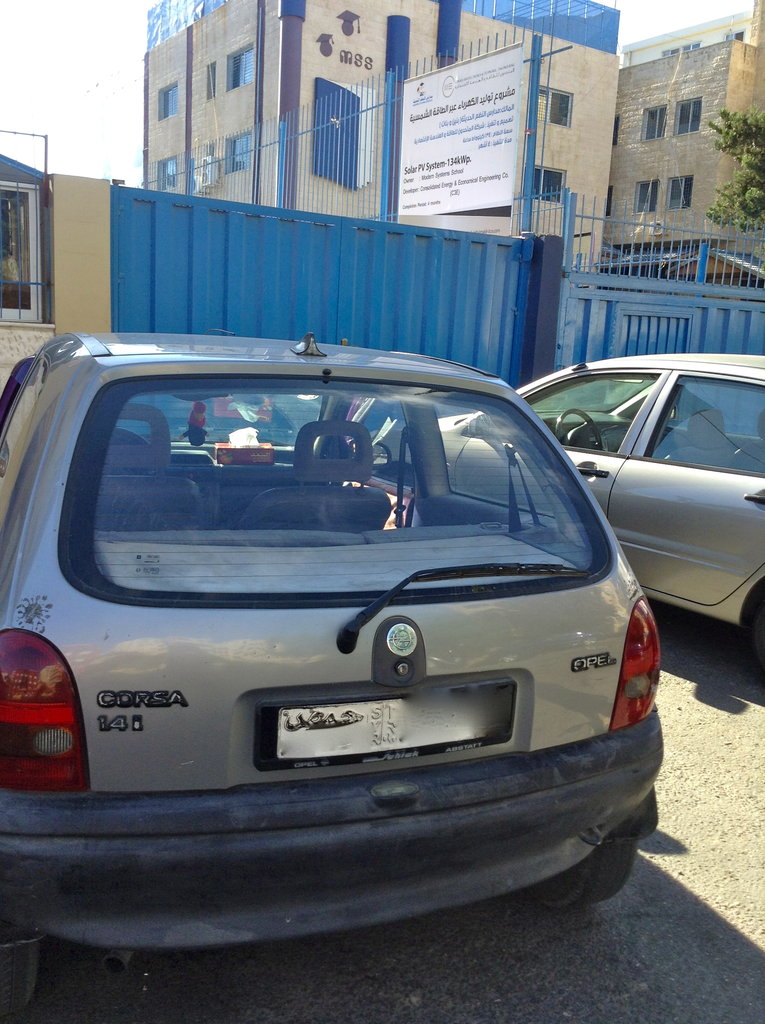By Miyako Hamasaka | PR Manager
[Socio-economic Disparity in Zaatari Camp]
United under the UN agencies’ umbrella and for the second winter season, organizations working in the Zaatari Camp have started to prepare a contingency plan to accommodate 20,000-30,000 new arrivals to the camp. In addition UNHCR has established a Strategy Advisory Working Group to discuss a long term strategy. JEN was chosen as one of the six major INGOs among over 30 humanitarian organizations working inside the camp.
The camp has been developing at a rapid speed. Now, it has various shops and even a factory with special equipment to produce drinking water. At the same time, economic and social gaps of people inside the camp are growing. Many people are living in pre-fabricated housings with electric equipment, and on the other hand, there are also a huge number of people strongly relying on support from aid agencies. It is important to include those vulnerable people (infants, women household families, elderly and disabled people) in JEN’s activities and make sure each and every person receive support from aid agencies.
[Rising Cost of Living Accompanied by the Syrian Crisis]
The price of daily necessities gradually but surely has gone up. Rent fee has also risen nearly 20 percent compared to that of 2 years ago. Some of the refugees from Syria have come to Jordan rent houses by themselves. In addition, the prices of gas and petrol have also slowly gone up since the beginning of this year. As gas stoves and central heating consuming heavy fuel oil are commonly used in Jordan, the increasing fuel cost is expected to make an impact on the livelihoods of Jordanians.
JEN has supported not only Syrian refugees but also public schools in the host communities that have been hosting people evacuating from Syria. We do so through rehabilitating school facilities and promoting hygiene education. JEN has continued to work in order to make changes to the actual situations of both Syrians and Jordanians, and to ensure their safety and comfortable lives in Jordan.
[Colleagues 3,000 Kilometers Away]
JEN activities are supported by various local staffs. Some staffs go to the field every day and communicate with people in needs directly, while some assist such project staffs so that they can carry on activities smoothly. Back-office section doesn’t draw much attention, but it plays a key role of project implementation. Donations are utilized not only for ones directly delivered to people but also for those costs which are required for supporting projects.
Recently, our admin staff had a skype meeting with a local staff in Juba office. Both of them are thoroughly versed in administrative issues, so international staffs didn’t attend the meeting, and it was held in Arabic. It is the first time for her to talk to South Sudanese as well as JEN staffs working in other office so it was motivational for her. It is expected that meetings like this will be continuously held and staffs in different offices being inspired by one another contribute to the further improvement of JEN activities.
[Winter Clothes Distribution to 9,000 Families]
Situated in the desert terrain, Zaatari refugee camp should face an extreme seasonal temperature. During the summer, it has faced a fierce heat up to 40 degree Celsius. While during the winter, the refugees will live in severe conditions where the rain is heavy and the temperatures are low.
Last winter of 2012, JEN provided assistance through distributions of winter clothes packages to more than 7,500 families in Zaatari Camp and the border areas. A similar activity will be implemented by JEN for upcoming winter season, 2013. JEN has extended the partnership with UNHCR for distributions of clothes donated by UNIQLO. JEN will start the clothes distribution to 9,000 families in October 2013.
[One Year On…]
Only few tents were there last year; however the current population of the camp reaches over hundred thousand people and the Zaatari camp became the fifth largest city in Jordan. JEN’s operation in the camp started from last September, 2012, right after the camp opened. JEN has worked together with UNICEF to establish WASH committee all over the camp to secure people’s presence in the WASH sector and develop their capacity.
Currently around 30 agencies are doing activities inside Zaatari camp. In response to rapid growth of the camp, UNHCR planned to divide the camp into 12 administrative districts and to assign one NGO as a lead agency of each district. JEN was appointed by UNHCR as a lead agency in areas where over 26,000 refugees live. JEN will continue to work in Zaatari camp in close cooperation with the Government of Jordan, UN agencies and other organisations working in the areas in order to ensure peaceful and comfortable living conditions for refugees in the camp.
Links:
By Miyako Hamasaka | PR Manager
By Miyako Hamasaka | PR Manager
Project reports on GlobalGiving are posted directly to globalgiving.org by Project Leaders as they are completed, generally every 3-4 months. To protect the integrity of these documents, GlobalGiving does not alter them; therefore you may find some language or formatting issues.
If you donate to this project or have donated to this project, you can receive an email when this project posts a report. You can also subscribe for reports without donating.
